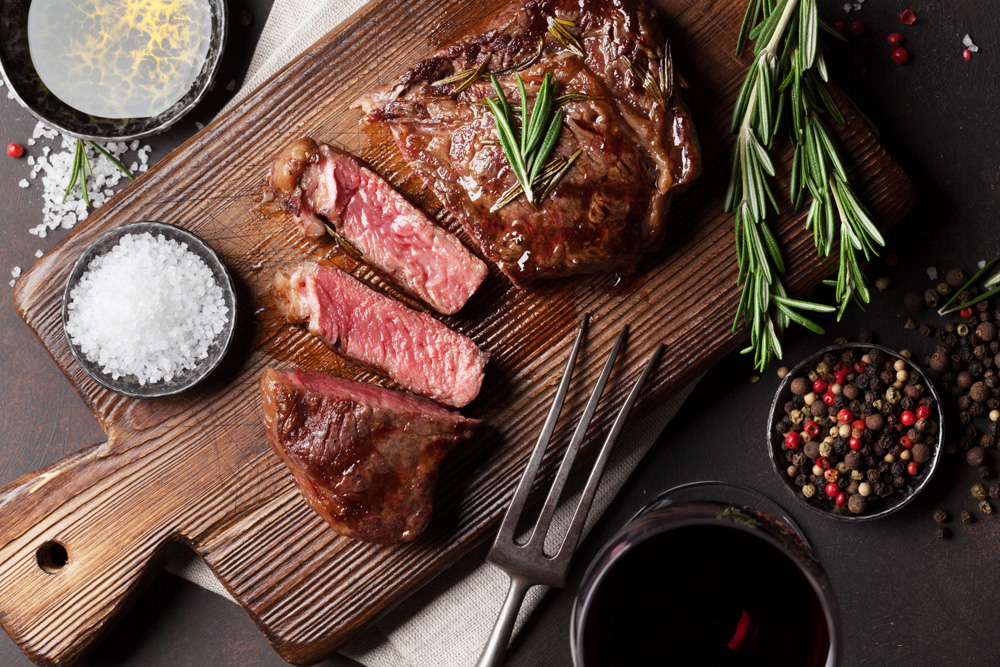The Manitoba Advantage in Beef Protein
Located in the heart of Canada, Manitoba is the perfect place to develop the beef protein industry. Its efficient trucking routes make it an ideal hub for industry growth and it has markets to the east, west, and south. Ranches are strategically located throughout the province to utilize pastures, Crown lands, forages, and water supplies for sustainable and cost-effective beef production and feed supply.

Manitoba's Beef Industry
Manitoba's beef industry covers the full range of products, including cow-calf, feeder, and stocker, and feeding operations and processing facilities.
- Manitoba is home to Canada's third-largest herd of beef cows, representing 11 per cent of the national herd in 2022.
- As of January 1, 2023, there are 960,000 cattle and 392,700 beef cows on farms. The province has about 6,715 farms with an average of 152 head per farm.
- The majority (78 per cent) of beef cattle in Manitoba are raised on cow-calf farms, while 15 per cent are raised in feeder and stocker operations, and 7 per cent are raised in feeding operations.
- 429,660 head were sold in 2022, and Manitoba reported $688 million in cash revenues for cattle and calf sales.
- Manitoba exported 98,960 head of live cattle worth $162 million in 2022, with the United States being the biggest export market.
- Beef producers market their animals through auction markets and licensed brokers or by selling directly to other producers, feedlots, and processors.
- In 2022, Manitoba cattle marketing was 2 per cent lower than in 2021. Manitoba auction markets handled 309,907 head in 2022, with the most significant sales in October and November.
Learn more about beef production in Manitoba here.
Industry Associations:
Research
The University of Manitoba has developed a multidisciplinary research program, focusing on productivity and environmental sustainability.
The Manitoba Beef and Forage Initiatives (MBFI) centre is an excellent location for innovation in agriculture and research. The goal of the centre is to use science-based research to benefit valuable ecosystems, improve profitability for beef and forage producers and build public awareness and understanding of the beef industry.
Wet meadow rangelands provide important ecological services in Manitoba, including forage production, capturing water and nutrients, and sequestering carbon. The University of Winnipeg is exploring ways to measure soil health in grazed wet meadow grasslands in Manitoba. This project will build on ongoing research to explore links between cattle grazing, the structure and composition of wet meadows, and soil function. Their research is conducted in collaboration with Manitoba Beef and Forage Initiatives Inc., Manitoba Beef Producers, and Nature Conservancy of Canada. Findings from this research will help sustain the ecological functions provided by wet meadow rangelands in Manitoba and maintain their productivity while contributing to sustainable beef production in Manitoba.
Manitoba Agriculture and Food Knowledge Exchange (MAKE) Podcast
Market and Consumer Trends
With increasing consumer preference for sustainable food consumption, the demand for sustainable beef production is rising. Many Manitoba beef producers use national programs like Verified Beef Production-Plus (VBP+) and Certified Sustainable Beef Framework. These programs certify industry standards for safety, quality, consistency, and sustainability. More Manitoba producers are participating in VBP+ than in any other province.
Contact
For more information about Manitoba's beef sector or if you would like this information in an alternate format, email us at: agindustrydev@gov.mb.ca
